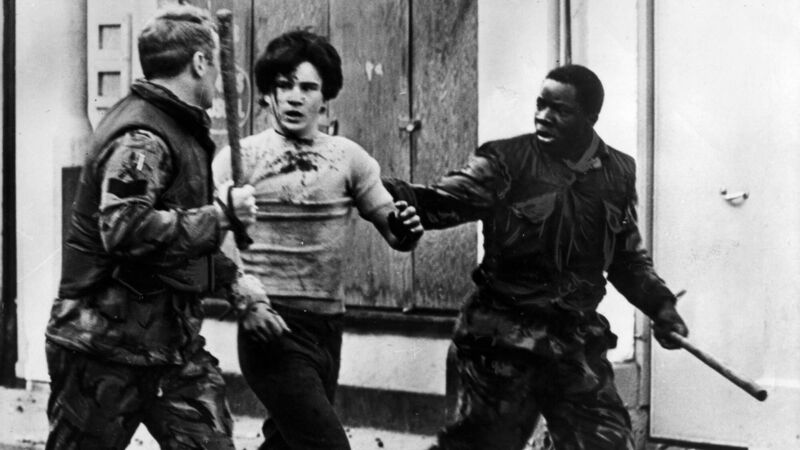Maeve Higgins: American lens on The Troubles remains all too relevant today

British troops make an arrest during a civil rights demonstration in Belfast. Noraid was a tiny shoestring operation who were able to shape the narrative for many thousands of Irish-Americans and sympathisers against a highly sophisticated and funded operation like the British Information Service. Photo: Keystone/Getty Images














